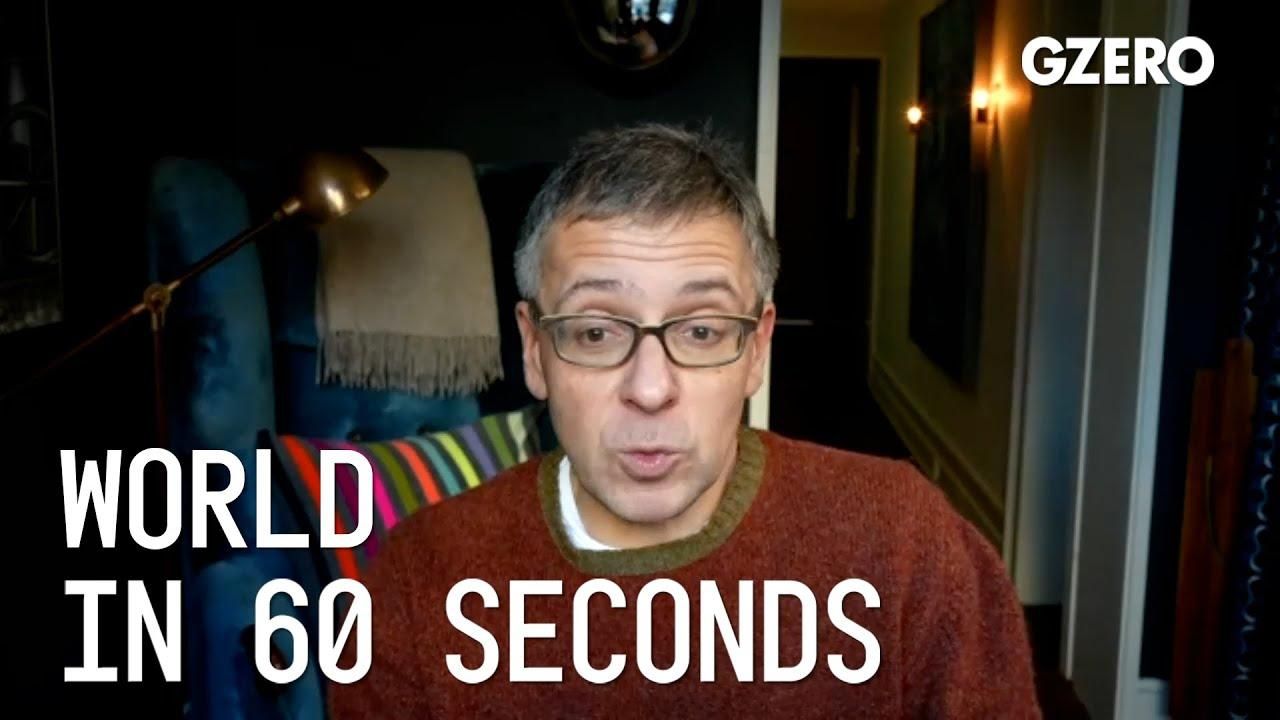Ian Bremmer shares his insights on global politics this week on World In :60.
Now that Congress recommends charges against Trump, will the DOJ take action?
Increasingly, the answer appears to be yes, especially now that the attorney general has a special counsel on the case, and he has recused himself, that makes it a lot easier to proceed with charges. This is unprecedented territory. We've never seen a Congress actually refer criminal charges of a former president before. But of course, former President Trump was also pretty unique historically for the United States. Either way, he's considerably damaged much more so than he was after January 6th. You remember then Kevin McCarthy went down and was kissing the ring in Mar-a-Lago within a few days, that's not happening this time around. So it's a much bigger hole for him to dig himself out of, even though he's ostensibly running for the presidency already, we don't see much of that yet.
With Putin making a rare visit to Belarus, is further escalation ahead in the Ukraine war?
Yes, though I'd be very surprised if it's coming from Belarus. In fact, I expect that the big new counteroffensive is not coming from the Russians, but rather the Ukrainians, as soon as the ground is hard enough to easily get tanks through and the like. Which would probably be an effort to either take a Melitopol, Mariupol, one of those areas back that would sever the land bridge between Russia and Crimea. That is what it appears the Ukrainians are trying to do, and if they were to make it all the way down to the coast, then potentially Crimea is within HIMARS's range. That would be quite a significant escalation in terms of Ukraine's position and would be deeply concerning for Putin and for Russia. Watch this space over the coming weeks.
A "Paris Agreement for nature." More talk or are the biodiversity targets set at COP15 achievable?
They are achievable. It's interesting. A week ago, all the developing countries basically walked out to show they were angry that the West wasn't moving, the wealthy countries weren't moving in favor of progress at these talks. These are biodiversity talks that's very different from carbon emission talks. The big announcement is a commitment by everyone attending, which is pretty much the world, that 30% of the world's nature will be protected by 2030. It's a start. We're in a hole there as well, especially given that over half of the animal life on the planet in the last 50 years has already gone away. One of the most depressing statistics I've ever read. But it's nice to see that the world recognizes this and is starting to turn all of that around. It's taking too long. It's a little too late. But nonetheless, it is a hell of a lot better than not doing it at all.
More For You
At the 62nd Munich Security Conference in Munich, GZERO’s Tony Maciulis spoke with Benedikt Franke, Vice Chairman and CEO of the Munich Security Conference, to discuss whether the post-1945 global order is under strain or already unraveling.
Most Popular
Zelensky agrees: elections matter #PUPPETREGIME
As more small businesses move sales, payments, and customer relationships online, they unlock new opportunities, but they also become easier targets for cyber-criminals and other threat actors.
When Japanese Prime Minister Sanae Takaichi called snap elections last month, it was a big gamble. Holding a winter election just four months into her tenure with no real policy record to run on?
